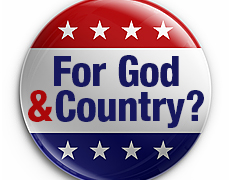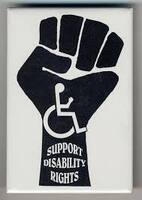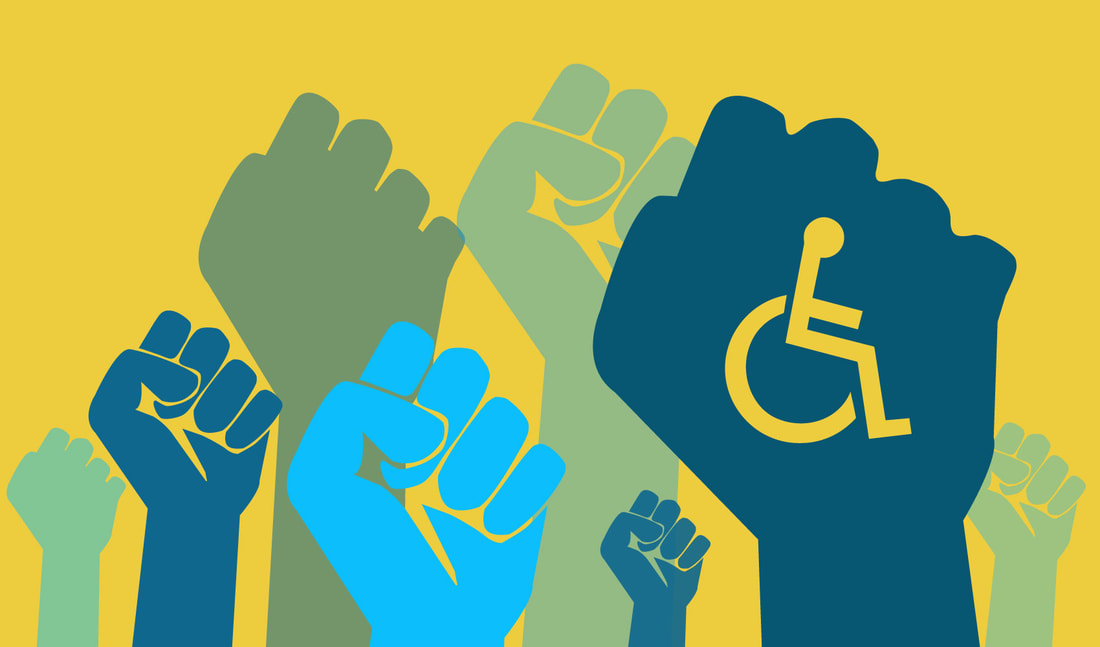
When I became a minister in the mid-Nineties, I started out preaching for small, rural congregations, in which the majority of the older men were veterans of WWII or Korea and the middle-aged men were Vietnam vets. I was often invited and expected to lead prayers at VFW sponsored events, and nothing was more sacred than officiating a military funeral. The military definitely knows how to bury people in a way that evokes reverence and patriotism.
War stories and discussions of the sacrifices veterans made often cropped up during Sunday school and potlucks. People in the pews often interpreted biblical verses through the filter of American patriotism. For example, whenever the Ten Commandments were considered, we were always quick to point out that “Thou shalt not kill,” does not apply to a Christian doing his or her God-given duty in the military. It is a “God-given duty” because of passages that instruct that we should render to Caesar what is Caesar’s, and that we are to obey our leaders, and that governments are ordained of God, and their leaders are God’s servants (I can provide you with the Scripture references, but you’ve probably heard them before).
All of this seemed well and good, until I began to read Christian thinkers of the past who were pacifists—people who conscientiously objected because they equated the church with Isaiah’s peaceable kingdom in which swords were to be beaten into plowshares. People who put conscience above country because of a passage that states that it is better to obey God than man. I had certainly never heard of these people or had their views represented to me. Then the thing occurred that forever changed my views on the whole debate: I travelled to the former Soviet Union.
In 1994, I was part of a mission team that went to Minsk, Belarus to conduct Bible studies for two weeks. This was my first trip outside of the U. S. It was my first trip in an airplane and only my second trip outside of the state of Arkansas. My only perceptions of communism and people from the Soviet Union had come from the U. S. government and media. When I got there, I saw for myself that the reality was drastically different. I did not realize it then, but this was my first taste of critical cultural studies, a branch of social science research that examines the power structures and propaganda that control people.
On our last night in Belarus, we had a reception at the hotel for all the translators who worked with the mission team. After our meal, we went around the room taking turns to rise and say something to the group about what the experience had meant to us. Near the end of the cycle, Sergei rose. He was a tall, slender man in his mid-50s, I presumed. He had been quiet and reserved during the two weeks. He was the stoic, Soviet man that I had come to expect from the media portrayals I had consumed all my life.
Sergei did not have many words, but what he said chilled me to the bone. His words were like a blinding light, and they resulted in a Damascus road conversion experience for me. He basically said, “You know, all my life I was told that Americans are my enemy.” I thought, “Yeah, I was taught the same thing about Soviets.” He added that his military training had prepared him to kill Americans, and then he said, “But now I realize it was all a lie. I have brothers and sisters in America. You are my brothers and sisters.”
It was then that I realized the tragedy of the predicament that the U.S. and the U.S.S.R. had been in for so long: two governments each preparing its citizens to kill the other. All the while, if the people could just meet each other, just spend two weeks with each other; they would be able to see that it was all a lie.
I came back to America a changed man. The next time I stood before my Sunday school class and the conversation came up about one’s God-given duty to country, I was unsure exactly what I believed, but I knew what I no longer believed. This is how it played out:
Me: To whom does the Great Commission apply? To the whole world or just to the U.S.?
Class: The whole world.
Me: Is the Bible for the whole world or just the U.S.?
Class: The whole world.
Me: Does the Bible teach that citizens are supposed to obey the government?
Class: That’s right!
Me: So, if Uncle Sam, tells you to take up arms and go kill the Soviets, then it is your God-given duty to obey Uncle Sam?
Class: Absolutely!
Me: Okay, well, what about Sergei, who is a Christian in Russia. He has the same Bible. He has the same verse that tells him to obey the government. His president tells him to take up arms and kill Americans. So, is it his God-given duty then to obey his government to the end result that we have American Christians trying to kill Russians and Russian Christians trying to kill Americans and both are obeying God?
Class: Now wait a minute! Uh….
This is the conundrum that no Christian has ever been able to resolve to me, and by their reactions they seem to have never even known it existed until I presented them with it.
Is there such a thing as a just war? Perhaps. I certainly think someone like Hitler had to be stopped. And although I have a problem with a society over glorifying military service, I do deeply respect the service our veterans have rendered, and I believe they deserve every benefit in terms of healthcare and social services that we can afford them. Some of my best friends and the people who have tremendously influenced me in positive ways are veterans.
All I am saying is that it is not as simple of a matter as some make it out to be when they preach the peculiar American gospel of God, Country, and Family. Whatever excuse you may use to justify war and/or your involvement in it as a Christian, you cannot do it by simply quoting Scriptures that tell you to obey the government. You cannot have Christians using the same verse to justify killing each other and believe that this could be God’s will.
You have a right to believe and practice however you do; I am simply asking you to examine the reason behind your beliefs and practices. Our hurried lives tend to focus on who, what, when, where, and how, but the question of why is the deeper and more important one to ponder.


 RSS Feed
RSS Feed
